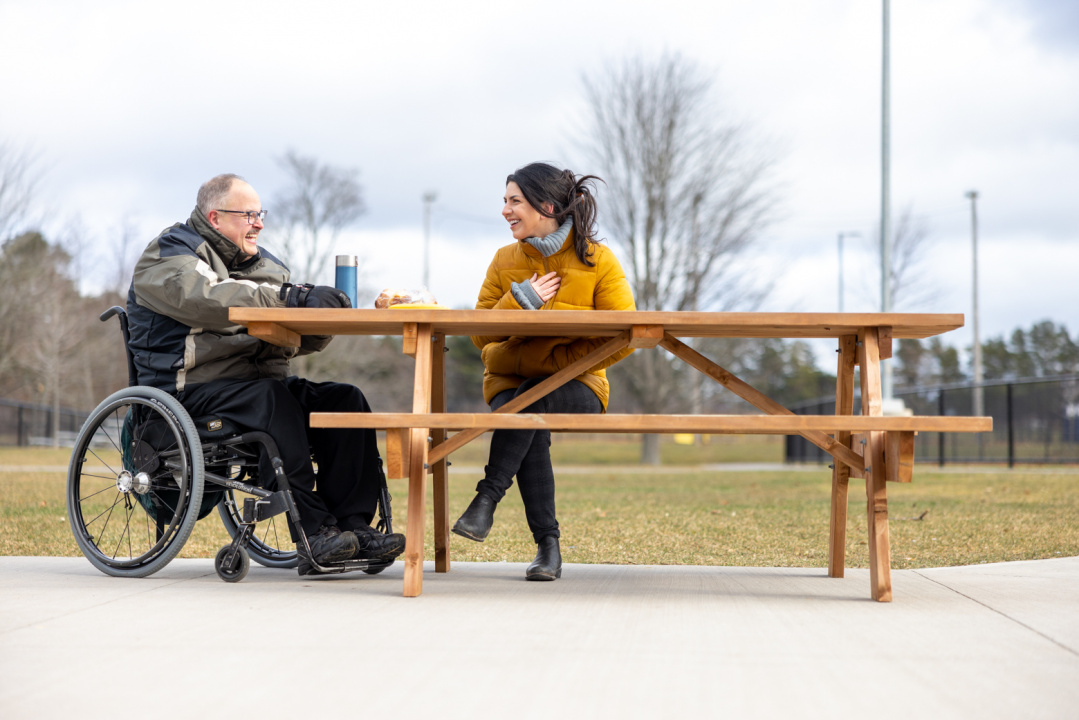Province Releases Second Annual Human Rights Remedy Progress Report

The Province released its second annual progress report today, June 10, on actions in the remedy to address a finding of systemic discrimination against people with disabilities. (Province of Nova Scotia / File)
More Nova Scotians with disabilities are living in community, receiving individualized planning support and funding, and engaging in building the future of disability support after two years of progress on the Nova Scotia Human Rights Remedy.
In its second annual progress report, submitted May 30, the government reported exact compliance with 20 targets and substantial progress on the remaining eight.
“The transformation underway within the disability support system will make Nova Scotia a global leader in how we welcome and support people with disabilities,” said Scott Armstrong, Minister of Opportunities and Social Development. “I’m proud of what we have accomplished as a province in just two years – together with partners across government, in the healthcare and education systems, among service providers and in communities – and, most importantly, the real difference it has made in the lives of Nova Scotians with disabilities.”
In the second year, the government:
- ended all new admissions to adult residential centres, regional rehabilitation centres and residential facilities, effective January 1, 2025
- reduced the institutionalized population by 189 – 22 per cent over the baseline set in January 2023
- connected another 124 people to intensive planning and support co-ordinators now working on transition planning
- reduced the wait list for services by 50 per cent over baseline by supporting 293 more people with disabilities, exceeding the remedy’s target
- connected another 242 existing Disability Support Program participants to local area co-ordinators to support community-based individualized planning
- invited 100 Grade 12 students to participate in the new School Leavers Program, which connects students and their support teams with local area co-ordinators to create transition plans as they leave high school
- provided more funding to 2,900 people and families in existing individualized funding programs
- launched the Service Evolution Fund to support service providers as they transition their business models to align with the remedy targets, investing almost $1 million so far to advance 24 sector-led transformation projects across the province
- created a workforce strategy to guide government action to modernize and strengthen the disability support workforce, with new bursaries to support almost 100 students in disability support programs at Nova Scotia Community College and two private career colleges
- recruited 97 disability support professionals to positions in four regional hub sites
- appointed 64 people to four new regional advisory councils, more than half of whom have lived experience (also referred to as first voice)
- hosted 1,200 people in person and online at the second Rebuilding HOPE conference.
The report was submitted to the Disability Rights Coalition of Nova Scotia, the Nova Scotia Human Rights Commission and the expert monitor, Michael Prince, who will respond within 60 days.
Quotes:
“I've been involved with these sorts of initiatives in several countries around the world. Typically, after two years, most reforms have started to lose their potency. Life starts to go back to how it used to be. What we are experiencing here is that there’s a lot of momentum. The leadership is still in place and there’s been a lot of progress. The staff recruitment and investment in high-quality training and cultural change will pay dividends. I'm very, very encouraged with the foundations that have been set.”
– Eddie Bartnik, co-author of the remedy technical report
“I noticed that the new library in my community had no wheelchair to help with mobility. My experience working in community meant I knew who to call to start the conversation about enhancing accessibility. The contacts I reached out to were amazing and purchased a wheelchair right away.”
– Sally Tanner, local area co-ordinator, western region, Disability Support Program
Quick Facts:
- in response to a finding of systemic discrimination, the Disability Rights Coalition and the Province of Nova Scotia jointly selected and engaged external experts Eddie Bartnik and Tim Stainton to prepare a technical report recommending a remedy to address the systemic discrimination
- the ultimate legally required outcome is to remedy discrimination against people with disabilities by the end of five years (2028)
- Michael Prince, a professor of social policy at the University of British Columbia, is a Canadian expert in disability issues and social discrimination and was appointed jointly by the Province, the Disability Rights Coalition and the Nova Scotia Human Rights Commission